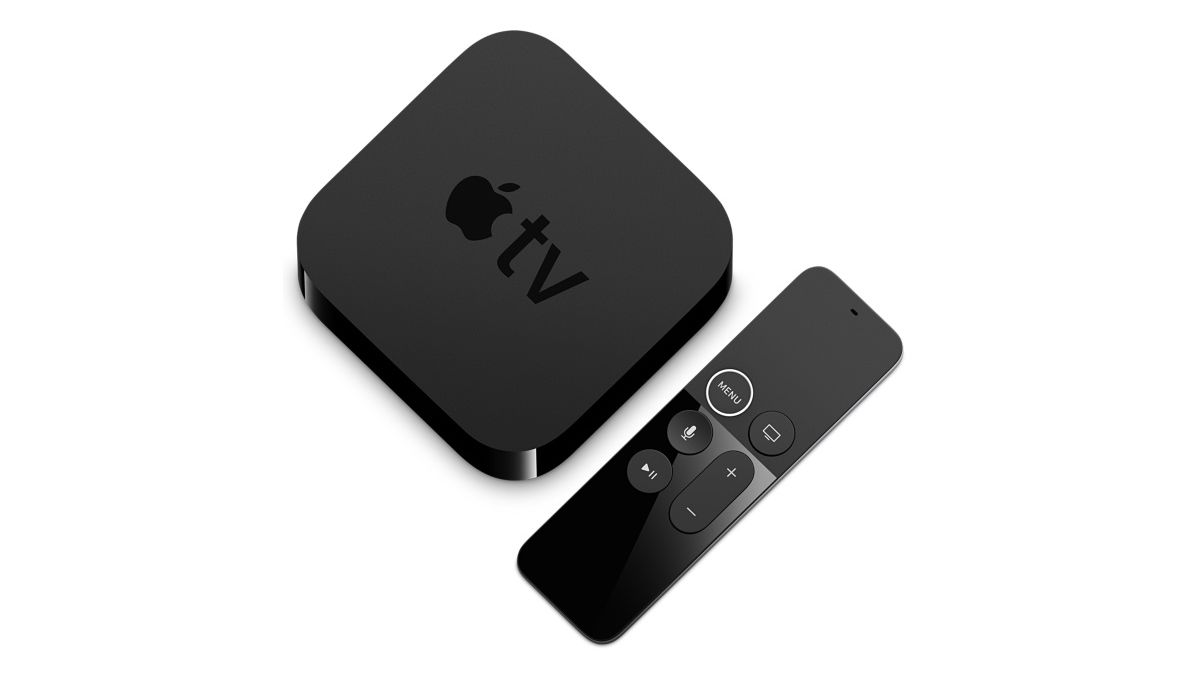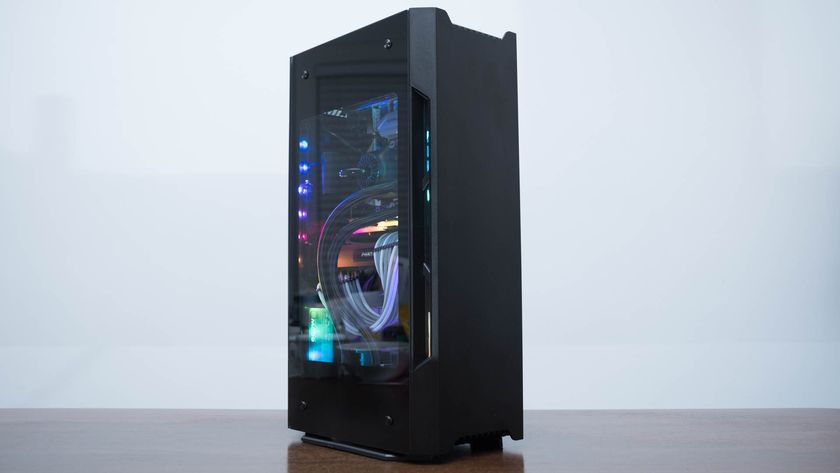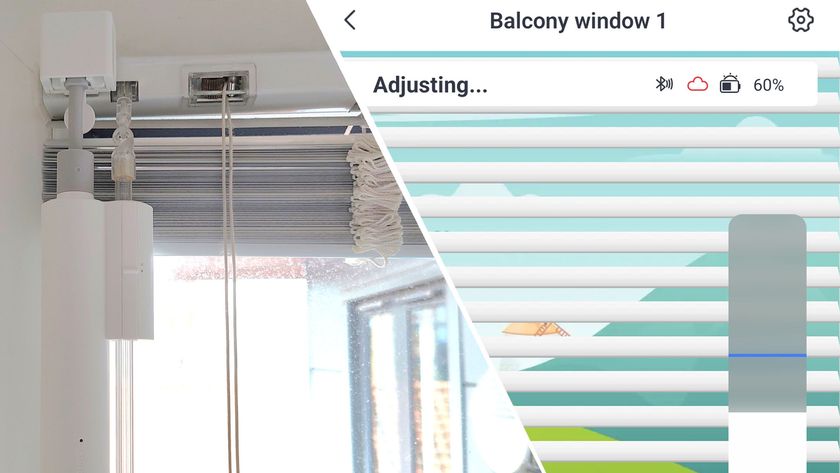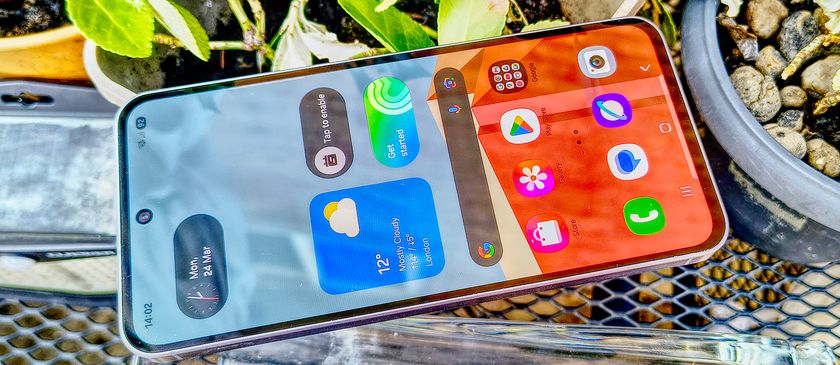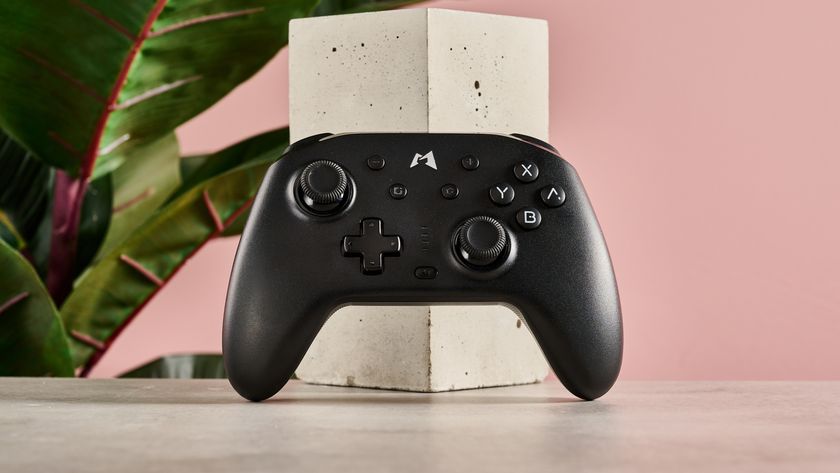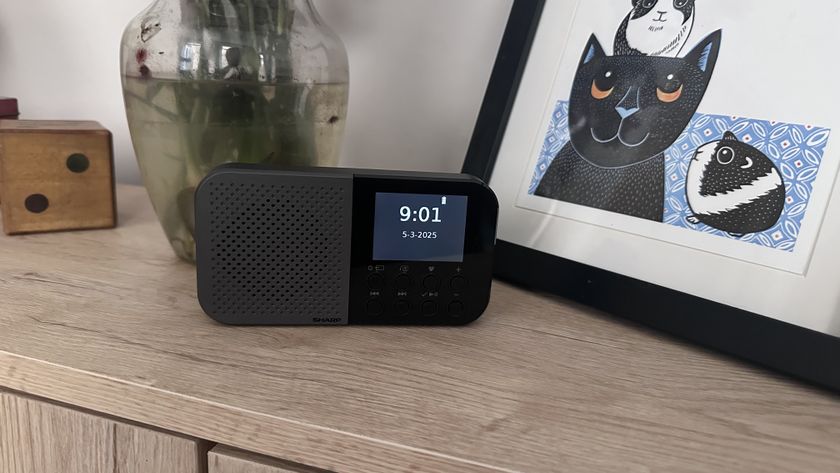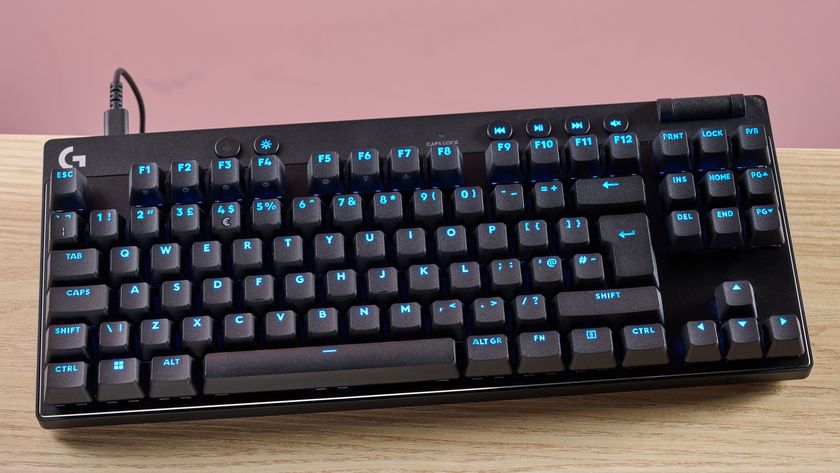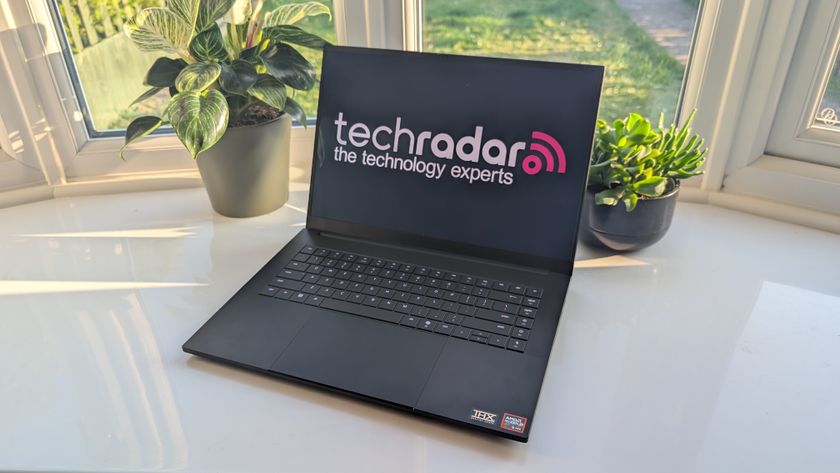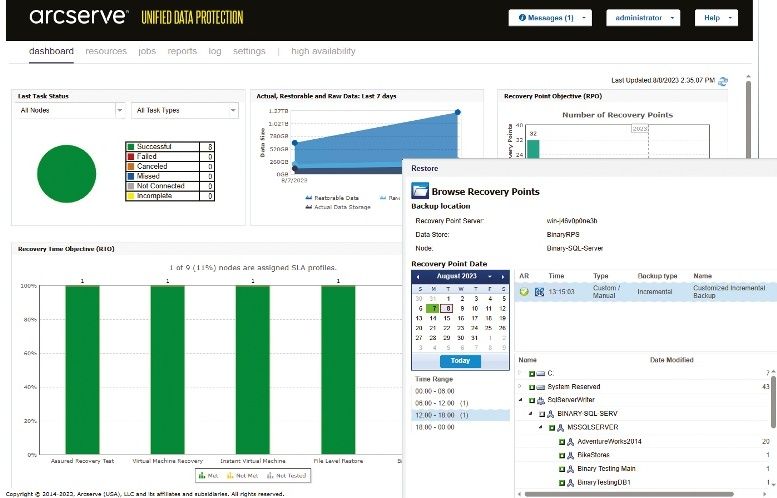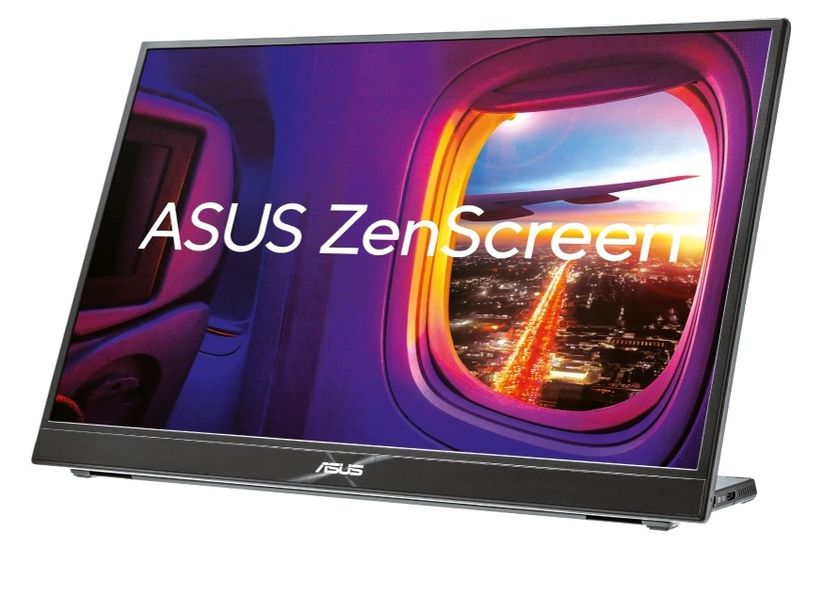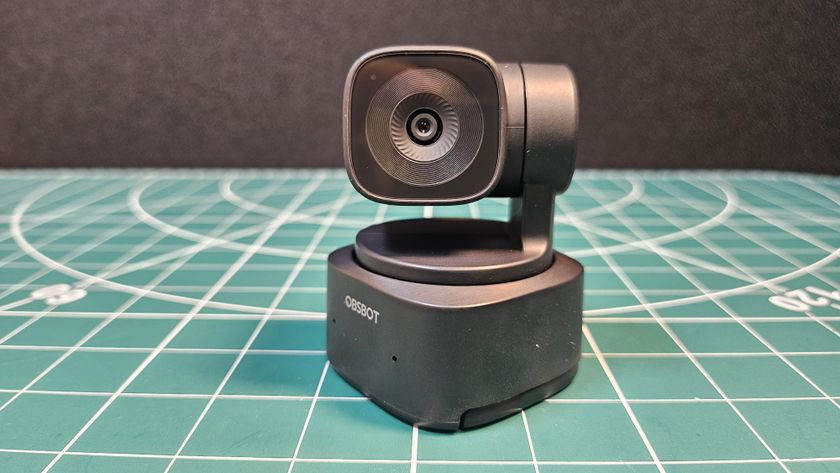TechRadar Verdict
One day the Apple TV HD might be the revolution the Cupertino company promised it would be. But, for right now, it's a middling streaming video player that has a premium remote and a price tag to match.
Pros
- +
AirPlay with iOS devices
- +
tvOS is a huge improvement
- +
Allows third-party apps
Cons
- -
Bluetooth remote needs work
- -
Pricier than similar devices
Why you can trust TechRadar
The Essential Review
UPDATE: The Apple TV 4K 2021 is confirmed, with the tech giant having announced a 2021 iteration of its streaming device that adds a revamped Siri remote and high frame rate capability. For our original review of the Apple TV HD, read on below...
The Apple TV was in many ways ahead of its time when it first broke cover back in 2015, boasting a sleek new touch remote, and a brand new software interface that no one had seen before.
Now named the 'Apple TV HD', it remains a decent streaming video player, not least because Apple keeps on pushing out tvOS updates for the Apple TV. Recent updates cover benefits for US sports fans, such as real-time notifications and live scores for multiple games.
If you don't mind a bit of experimentation, you're the kind of person who will enjoy Apple TV the most – playing around with AirPlay streaming and digging through apps to sort the good ones from the so-so ones.
Roku devices are more straightforward, Chromecasts are cheaper, and Amazon's Fire TV does more or less the same job (with 4K HDR support) on a budget, so where does that leave the older Apple TV model in 2018?
It leaves it as a capable 1080p streaming device with plenty of speed and style, even if the threat of a newer model is constantly looming overhead. For those who want higher resolutions with the same ecosystem, there's the Apple TV 4K.
- Thinking of getting an Apple TV? Here are the best Apple TV deals
Apple TV HD price comparison
As it stands, the Apple TV comes in two flavors - the 1080p Apple TV, and the Ultra HD-capable Apple TV 4K. Both of these devices are a bit more expensive than similarly spec'd streaming devices, but Apple's streamers do have a certain style about them that you can't find anywhere else.
If you still want the older Apple TV model, it's only available at one price point now: $149 / £149 / AU$209 for the box with 32GB of local storage. If you already own one and are thinking about upgrading to the 4K model, we'd wait and see what Apple brings out before the end of 2018 first.
Of course, as we mentioned earlier, the Apple TV is a bit limited in the resolution department. Namely, it's stuck in 1080p. If you have a new 4K TV and you're looking to take advantage of that extra headroom, you're going to need to upgrade to the Apple TV 4K – a nearly identical version of the Apple TV but one that supports Ultra HD streaming and two types of HDR.
The Apple TV 4K comes in at, you guessed it, two price points. There's a 32GB and 64GB version of the device but, unless you plan on going heavy on the apps, the 32GB should be fine for most folks. The 32GB Apple TV 4K comes in at £179 / $179 / AU$249, and the 64GB option at £199 / $199 / AU$279.
- Read: Check out our guide to the best Apple TV accessories!
- Save money when you purchase an Apple TV with our Apple discount codes.
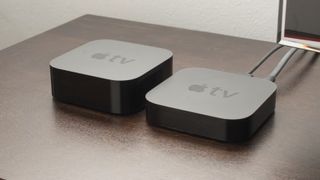
Apple TV HD: What is it?
The Apple TV that this review deals with is the fourth iteration (launched 2015) of a "hobby project" Steve Jobs started in 2006. Jobs' vision was to create a dead-simple entertainment hub, one that could access your media in a few simple steps.
That came to fruition in 2007 with the first Apple TV. (Apple wanted the name iTV, but the major British broadcast network of the same name threatened to take legal action should Jobs brand Apple's new device use that moniker.)
In the time since then we've seen two sequels that upgraded the internal Wi-Fi antenna from 802.11b to 802.11a/b/g/n before landing on 802.11ac for the latest build. The processor has been radically changed in that time, too, starting at a 1 GHz "Dothan" Pentium M equipped with 256 MB and ending on a vastly improved 64-bit Apple A8 processor.
Yes, a lot has changed since the first Apple TV. There's less hard drive space on the new unit, ironically, but that's because streaming has overtaken the notion of owning content.
Speaking of hard drive space, the new Apple TV comes in two flavors: an Apple TV and an Apple TV 4K. The only difference between the two is the resolution.
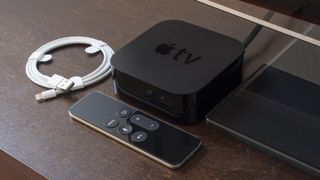
Both of the new Apple TVs are driven by apps of all shapes and sizes, not just first-party ones anymore. For the first time ever you'll see the wealth and power of the Apple App Store in the living room, and I expect that once the system matures it will be a sight to behold.
And, unlike the bastardized OS of systems past, the new plastic runs a platform of its own called tvOS, a nomenclature taken from the Apple Watch's watchOS.
What hasn't changed is that Apple still cares first and foremost about Apple products. The new Apple TVs work best with iPads, iPhones and Macs thanks to Apple AirPlay and will allow you to easily stream content from your phone or tablet to the big screen.
And while there have been steps taken to make the system feel less Apple-centric, the iTunes store stands firmly in the center of everything. Every search includes results from iTunes. Every purchase goes through iTunes. You can't go more than five minutes without being shown some new TV show or movie that, as soon as you click on it, will bring you back into the icy-cold money-loving hands of Apple's ecommerce magnate.
Apple TV HD vs the competition
If you're entrenched in the Apple ecosystem (by which I mean you buy movies and shows from iTunes, subscribe to Apple Music and/or stick to phones and tablets running iOS), then the Apple TV HD will be a supremely good addition to your living room that will only improve with age.
The fewer of those features you care about, however, the less you'll like Apple TV against the other extremely strong contenders in the streaming video space.
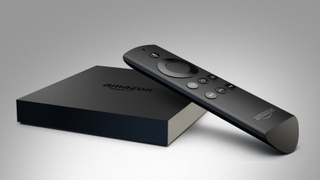
Apple TV vs Amazon Fire TV: The Amazon Fire TV has been a thorn in Apple's side since its launch in 2013. It presents its own problems by restricting a good deal of content to Amazon Prime subscribers, but the most recent revamp of the system saw a huge improvement with the addition of 4K streaming.
The Fire TV is not nearly as good a game console as the Apple TV HD has the potential to be (or even currently is), but it does have the advantage in price – $99 (£79, about AU$140) vs the Apple TV's $149 (£149, AU$269).
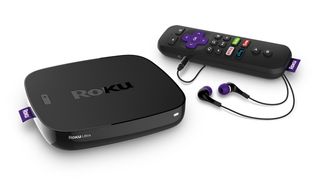
Apple TV vs Roku Ultra: If you're in the US, own a 4K TV and are more concerned about streaming video content than any app or game, stop reading right now and buy a Roku Ultra. At $99 it's significantly cheaper than the Apple TV 4K and worth every cent.
Why? Well, the Roku Ultra is the most egalitarian system of the bunch. It doesn't care if you pick Netflix over Amazon, or Vudu over Hulu. It doesn't want to sell you an Spotify subscription, and it could care less if you join YouTube Premium or not. At the end of the day, all Roku's new device cares about is getting you to the content you want through the most affordable means possible. It's entertainment on your terms, and in my opinion the epitome of the cord-cutting movement.

Apple TV vs Android TV / Chromecast: It's hard to compare a full-size system to Google's pint-sized streaming disc, but if you could put the two against each other pound-for-pound, the $35 (£30, AU$49) Chromecast would probably eke out a win.
Google's streaming stick plays nicely with both iOS and Android apps, and while it doesn't have an interface of its own it boasts a relatively impressive app that essentially performs the function of a full streaming video box at a quarter of the price. Admittedly it's up to developers to support the Chromecast, whereas Apple can control its own destiny for the Apple TV (and the Siri Remote is admittedly pretty svelte).
Nick Pino is Managing Editor, TV and AV for TechRadar's sister site, Tom's Guide. Previously, he was the Senior Editor of Home Entertainment at TechRadar, covering TVs, headphones, speakers, video games, VR and streaming devices. He's also written for GamesRadar+, Official Xbox Magazine, PC Gamer and other outlets over the last decade, and he has a degree in computer science he's not using if anyone wants it.
